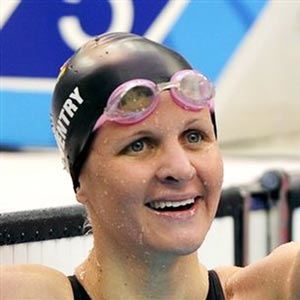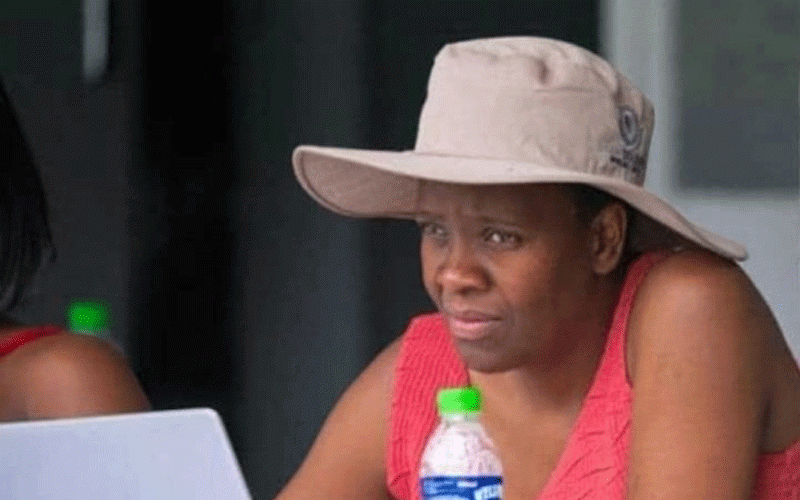
As we bid adieu to 2012, memories will always linger of whatever happened in sport as the country hopes for a better 2013.
REPORT BY MICHAEL MADYIRA
FOOTBALL In the early hours of Sunday December 16, tragedy struck as one of Zimbabwe’s most illustrious football stars, Adam Ndlovu, died in a horrific car crash near Victoria Falls.
The accident, which left his brother Peter critically injured, shook the football world, with condolences and get-well-soon messages pouring in from across the globe.
This summed up the iconic status of the Ndlovu brothers, as the nation stood united in celebrating the life of Adam.
It is sad that Zimbabwe’s sporting year has to be wrapped up by such a tragic incident.
Apart from that calamity, football in 2012 was all gloom in an eventful year, mostly characterised by failure.
The Asiagate match-fixing scandal took centre stage, with the Zimbabwe Football Association [Zifa] in October imposing life bans on 15 people, including four players.
- R. Kelly sentenced to 30 years in sex trafficking case
- Implement policies that attract investment: Swiss envoy
- Perfect six for Chevrons!
- SuperSport sack Tembo
Keep Reading
After more than 80 players were suspended in January — a first in the world — a protracted investigation process followed, which ended with players and officials being handed various degrees of penalties that ranged from lengthy suspensions to hefty fines.
The Asiagate scandal which drew the world’s attention, crippled the senior national team during crucial matches when players were suspended.
2012 was a year where Zimbabweans were left cursing their luck after all national teams produced woeful performances and underlined their minnows status in continental football.
The Warriors’ last-minute failure to qualify for January’s Africa Cup of Nations tournament to be staged in South Africa was the biggest catastrophe on the field of play.
After beating Angola 3-1 in the home penultimate leg of the final qualification round, the Warriors blew away the advantage to agonisingly lose 2-0 in the decisive leg and missed qualification by the away goals rule.
Chaos characterised junior national teams as the Under-17 and 20 teams failed to fulfil away fixtures of their continental tournaments qualifiers.
This rendered the future of the country’s football bleak, with no junior players coming through the ranks to talk about.
The Mighty Warriors joined in asserting that the national game is walking wounded after failing to qualify for the Africa Women’s Championships following home and away defeats to Nigeria, which resulted in a 6-0 aggregate loss.
Two months earlier, the Young Mighty Warriors had fallen to the same opponents by a similar aggregate in the Women’s Under-20 World Cup qualifiers.
The Premier Soccer League however, offered some engaging action.
Dynamos retained their League and Cup double in a season where their star player, Denver Mukamba’s name entered Zimbabwe’s football Hall of Fame as the Soccer Star of the Year.
DeMbare coach, Kallisto Pasuwa, came out the best coach on the land in a term where the league race was decided on the final day, with rejuvenated Highlanders missing the championship on goal difference.
CAPS United would love to forget this season, which started promising by the hiring of Sean Connor, who however, did not last the season. The Northern Irishman claimed recently that he was being sabotaged by his assistants and players.
ATHLETICS Many countries usually bank on athletics as the medal-cow at multi-sport major competitions like the Olympics or All-Africa Games, but there was virtually no hope that Zimbabwean athletics would help in that regard.
Of Zimbabwe’s seven competitors at the London Olympics, athletics was represented by only three marathoners, equalling the 1988 record, where the same number was sent to Seoul, South Korea.
For the first time in the country’s Olympics history, there were no track and field athletes, thereby underlining the grim state of the sport in the country.
Zimbabwe also had a nightmarish outing at the 18th African Senior Athletics Championships in Benin in late June after all five athletics who participated failed to go beyond the first round of their respective events.
Rising athlete, Dumisani Bhebhe, also performed badly at the World Junior Championships in Barcelona, Spain in June, where Tinashe Mutanga who had qualified for the same competition failed to travel due to academic commitments.
Sharon Tavengwa won the Utrecht Marathon in Netherlands to qualify for the Olympics.
The Southern Region Senior Championships, which Zimbabwe hosted in May, ended with the country finishing third on the medals table with just two gold medals.
A few weeks earlier, Zimbabwe had also finished third at the junior version of the same competition in Namibia, where eight gold medals were harvested. Recently, another lethargic show was at the Zone VI games where athletics only managed to scoop two gold.
The Sunshine City Marathon, which was touted to be the biggest marathon event, failed to take place while new long distance running competitions, the Tanganda and Vumba marathons, emerged on the athletics calendar.
Last month the country ushered new leadership in athletics, with Tendai Tagara replacing long-serving Joseph Mungwari as the National Athletics Association of Zimbabwe (Naaz) president.
RUGBY Zimbabwe’s flag in sport was raised in rugby in both versions of the game, the 15s and sevens.
The men’s senior rugby team, the Sables, were in July crowned African Champions by lifting the Confederation of Africa Rugby (CAR) Cup after beating Uganda 22-18 in Tunisia.
Team of the year, the sevens rugby booked their fourth appearance at the International Rugby Board (IRB) Sevens Rugby World Cup slated for Russia next year.
The Cheetahs saw off Nigeria 19-14 in the regional qualifying tournament in Rabat, Morocco in late September at the same contest where their women counterparts, the Pangolins failed to qualify for the World Cup. However, the Under-19 team put up a lethargic show at the IRB Junior Rugby World Cup Trophy after losing all their three Pool B matches USA in June including a 43-7 drubbing by Georgia.
The Young Sables also failed to defend the CAR African Championships after losing 44-23 to Namibia in a tournament they hosted.
Zim’s dismal Olympic Games performance
Zimbabwe’s Olympics history posted a record of the lowest number of athletes ever (seven) and, for the first time, unable to compete in track and field events when the country participated at the London Olympic Games, returned with no medal.
Two-time Olympic gold medalist, Kirsty Coventry, this time failed to garner any medal while Cuthbert Nyasango stormed into the top 10 of men’s marathon race after finishing seventh.
Wirimai Zhuwawo crossed the line on 15th position in the same race, while female marathoner, Sharon Tavengwa, did not finish the race.
In rowing, Micheen Thornycroft became Africa’s top women’s single scull rower despite her Olympics campaign ending in the semi-finals.
Another rower, Jamie-Fraser Mackenzie, fell by the wayside as early as the heats in the men’s single sculls. Despite having competed at the Beijing Olympics four years ago, triathlete Chris Felgate, finished on a disappointing position 52nd ahead of just two others.
CRICKET It was all gloom for cricket, with little action all-year, laced by under-performance, as the sport continued to stagger.
Zimbabwe’s tour of New Zealand in January saw the Black Caps winning the tour’s only Test match, three one-day internationals and two Twenty-20 matches.
The unofficial T-20 home Tri-series that included South and Bangladesh, however, saw a full-strength Zimbabwe side clinching the series in June.
But the country went on to lose both their two Group C fixtures at the T-20 World Cup in Sri Lanka in September.
The ICC Under-19 Cricket World Cup in Australian in August saw Zimbabwe winning only one match of their two Group C matches where they lost to India and West Indies.
The Under-19s went on to lose to Scotland and Papua New Guinea in playoff matches before posting a 70-run win over Namibia in the 15th place playoff.
Former national team captain Tatenda Taibu quit the game “for good” at a ripe age of 29 to fully pursue his church commitments.
A dark cloud engulfed local cricket when former batsman and national team coach, Kevin Curran, died on October 10 after collapsing while jogging a few hours before his Mashonaland Eagles’ match against Mountaneers in Mutare.
TENNIS The Zimbabwe Open failed to take place after a brief return due to lack of funding. Zimbabwe’s brightest tennis prospect, Takanyi Garanganga, gave everyone reason to believe that he could be the next best thing to happen to the country’s tennis when he clinched his maiden singles professional title on the ITF Futures’ Circuit in Turkey in September. The 22-year- old won the Turkey F35 and 36 tournaments in Belcontti, Turkey, before wrapping the year with the ITF Futures One Circuit on home soil earlier this month.
GOLF Although he failed to win any major title, Zimbabwe Sportsperson of the Year, Brendon de Jong, posted three straight top-four finishes on the PGA Tour. It was also a season in which he ended ranked 41st for the first time since his debut year on the PGA Tour in 2007.
Another Zimbabwean, Ryan Cairns, won two Sunshine Tour events, his first professional victories.
United States-based teenage golfer, Sean Crocker, won the Ventura County Junior Golf Association tournament earlier this month.
Rated as one of the best players in the world, the 15-year-old also came out 16th out of 200 young golfers at the Junior World Golf Championships in San Diego, California, in July.
KARATE Zimbabwe returned to the world karate stage after 16 years when they contested in 21st World Karate Championship France last month.
The country sent five karatekas, although two of them failed to compete after arriving late for the bi-annual tournament. The three who contested Hazel Chirima, David Dube and Allison Nyoni were knocked out in the early stages of their respective categories. The local karatekas were at least exposed to competitive fighting at the highest stage of the sport. Thornycroft’s presence felt in rowing
ROWING Micheen Thornycroft became Africa’s top women’s single scull rower despite her Olympics campaign ending in the semi-finals. It was an eventful year, where she also raced in Spain, Italy, Germany, Switzerland, Netherlands and South Africa. Jamie-Fraser Mackenzie did not have a good outing at the Olympics, falling to get past the heats of the men’s single sculls at the Olympics.
Young rowers, Peter Purcell-Gilpin and Murray Faber, were at the Fisa World Junior Championships in Bulgaria in August, where the former finished 16 out of 33 rowers in the single sculls, while they came 22nd out in the doubles sculls.
Recently, Thornycroft travelled with Purcell-Gilpin, Faber, Daniella du Toit and Eliza Fraser-Mackenzie to the African Rowing Championships in Egypt, where Zimbabwe finished third after scooping three gold, three silver and two bronze.
Du Toit and Eliza used the Egyptian regatta as part of preparations for qualification races for the 2014 Second Summer Youth Olympics to be hosted by the Chinese City of Nanjing.
TRIATHLON After a dismal Olympics outing, Chris Felgate officially retired last month soon after the Troutbeck International Triathlon Union African Cup in Nyanga where he came out second to South Africa’s Henri Schoeman.
ZONE VI GAMES Zimbabwe disappointingly finished the Zone VI Games eighth on the medals table after managing three gold medals, seven silver and six bronze.
HOCKEY The men and women’s Under-21 hockey teams failed to qualify for the World Cup after losing all their qualifying matches at a tournament in South Africa in October.
The recently-held Africa Cup of Club Champions were either not pleasing for Zimbabwe as men’s teams Hippo Valley finished fourth while debutantes Hullets ended last.
The only ladies team representing Zimbabwe, Bulawayo Athletic Club finished fifth at the tournament staged in Bulawayo and dominated by Sharkia of Egypt.











